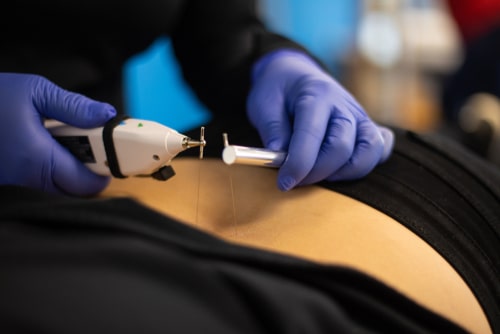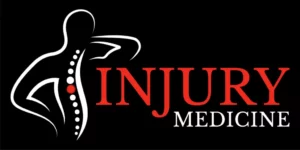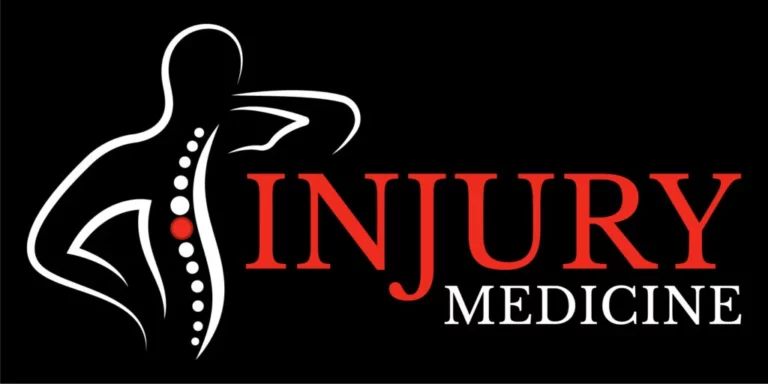Injections are a commonly used method in pain management, and can be particularly effective in treating chronic pain which can greatly limit your daily activities. By providing targeted relief to the source of your pain, injections can provide either temporary or longer-lasting relief depending on your specific condition, location of the pain, and its severity.
If you are experiencing chronic pain in Lexington, SC, you can trust our experienced team of pain management specialists at Injury Medicine in Lexington to provide you with effective treatment options including injections. Don’t let pain hold you back any longer, schedule an appointment with us today by calling 864-866-PAIN.
How Are Injections Used in Pain Management?
Injections can be a non-invasive way to manage both acute and chronic pain. They are often recommended as a treatment option after non-surgical methods such as medication have been attempted, but before considering surgery.
Injections can provide targeted pain relief by delivering medication directly to the source of the pain. This can be more effective than oral medications as the medication is delivered directly to the affected area.
Injections work in different ways to manage pain such as delivering pain-relieving medication to the affected area to reduce inflammation and numb the pain. Alternatively, they can block pain signals from reaching the brain by creating a heat lesion or delivering a pain-relieving medication.
One of the uses of injections is to assist in identifying the anatomical structure that may be the root cause of the pain, such as a herniated disc or a compressed nerve.
What Are Some of the Types of Injuries or Conditions that Can Be Treated With Injections?
Over-the-counter and anti-inflammatory pain medications may provide relief for some individuals, but they are not always effective. Ice or heat therapy can also help, as well as prescription pain medication.
Injections are often used as the next step in pain management when other treatments do not provide consistent relief. Injections can be used to treat a range of injuries or conditions, such as those listed below:
Neck Pain
- Hip Pain
- Shoulder Pain
- Back Pain
- Knee Pain
- Nerve Pain
- Sciatica
- Psoriatic Arthritis
- Osteoarthritis
- Rheumatoid Arthritis
- Bursitis
- Tendinitis
- Sports Injuries
- Gout
What Are the Different Types of Injections That Are Available at Injury Medicine?
In Lexington, SC, Injury Medicine provides various injections for managing different types of pain, such as:
Radiofrequency Ablation
Radiofrequency ablation, also known as rhizotomy, is a non-surgical procedure that aims to interrupt the transmission of pain signals along the nerve pathway to the brain. The treatment involves heating or ablating a portion of the nerve to prevent pain signals from passing through. Radiofrequency ablation is commonly used to treat headaches, facial pain, and pain in the spinal joints.
Sphenopalatine Ganglion Block
Sphenopalatine Ganglion Block injection has been proven to be a safe and effective treatment for cluster headache and trigeminal autonomic cephalalgias (TACs), which are both extremely painful disorders. The pain caused by cluster headache is among the most severe known to humans, but this injection offers relief without any major risks or side effects.
Here are some other conditions that can be treated with Sphenopalatine Ganglion Block injection:
- Migraine
- Atypical Facial Pain
- Nasal Contact Point Headache
- Temporomandibular Disorder
- Complex Regional Pain Syndrome (CRPS)
- Paroxysmal Hemicrania
- Herpes Zoster
- Trigeminal Neuralgia
Stellate Ganglion Block
A stellate ganglion block involves injecting a local anesthetic into the nerves of the sympathetic nervous system located in the neck, near the voice box, to alleviate pain.
Stellate ganglion blocks are used to alleviate various symptoms, including pain, swelling, color changes, and mobility issues in the upper extremity. Additionally, this procedure can also enhance blood flow in individuals with circulation problems caused by vascular disease.
Nerve Blocks
Nerve blocks involve injecting a local anesthetic directly into a targeted nerve or group of nerves to alleviate pain. This treatment option can provide temporary pain relief, allow for healing of damaged nerves, and help identify the root cause of the pain.
The aim of the injection is to cease the transmission of pain signals originating from a particular body location or minimize inflammation in that region. The injection of anti-inflammatory medication and local anesthetic helps support the recovery of the impaired nerves.
Celiac Plexus Block
A celiac plexus block is an injection that provides pain relief by targeting a group of nerves called the celiac plexus. These nerves transmit pain signals from organs such as the liver, pancreas, spleen, gallbladder, kidneys, and intestines to the brain.
The injection typically involves a combination of a local anesthetic and a steroid medication to reduce inflammation and relieve pain.
Sciatic Nerve Block
A sciatic nerve block is a pain management procedure that involves injecting anesthesia around the sciatic nerve to turn off the pain signals produced by injured nerves. It is commonly used to block pain resulting from surgery on the knee, foot, leg, or ankle, as well as for managing chronic lower extremity pain.
Facet Blocks
Facet joints are situated at the posterior part of the spinal column, and they function like other joints in the body. They can be impacted by disorders such as infection, arthritis, or injury caused by bending or twisting the spinal column, which can cause facet joint irritation or damage that results in pain.
The facet block procedure is carried out using imaging guidance to accurately insert a needle into the facet joint. This needle delivers a local anesthetic or steroid to alleviate pain caused by irritation or damage to the joint. The procedure can be performed on one or multiple levels and on one or both sides of the spine.
Discography
Discography, also known as discogram, is a medical procedure used for diagnostic purposes to examine the intervertebral discs of the spine. It involves the injection of a special dye into one or more damaged discs, which allows them to be visible on a fluoroscope monitor and X-ray film.
Spinal Cord Stimulators
Spinal cord stimulators (SCS) use a neurotransmitter that is implanted under the skin via an epidural needle to disrupt the pain signals that travel between the spinal cord and the brain.
Injections for Pain in Lexington Could Be Just What You Need!
Compared to other alternatives like surgery for chronic pain, injections have the advantage of being minimally invasive and carrying considerably lower risks. Additionally, injections do not have addictive properties, making them an excellent option for managing pain that may otherwise require addictive pain relief medications.
It’s important for individuals experiencing pain to seek the advice of a medical professional to determine the best course of treatment. At Injury Medicine in Lexington, SC, our experienced doctors can help determine whether injections may be an effective treatment option for you.
To schedule a consultation with our experienced doctors and learn more about how injections can relieve pain in Lexington, call Injury Medicine today at 864-866-PAIN.



